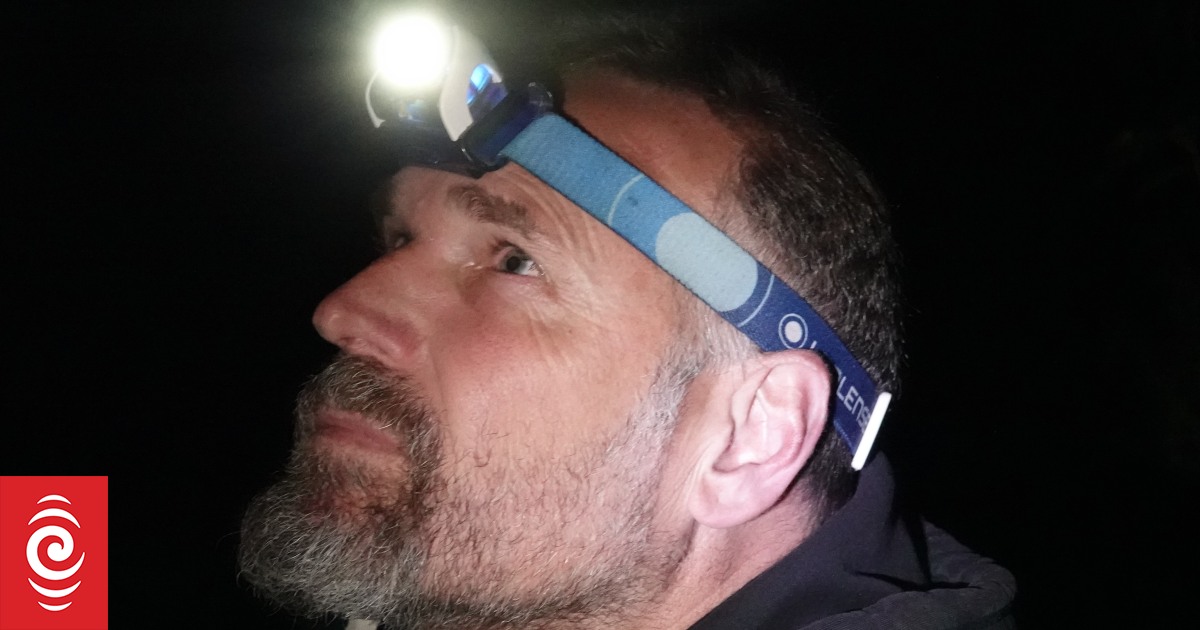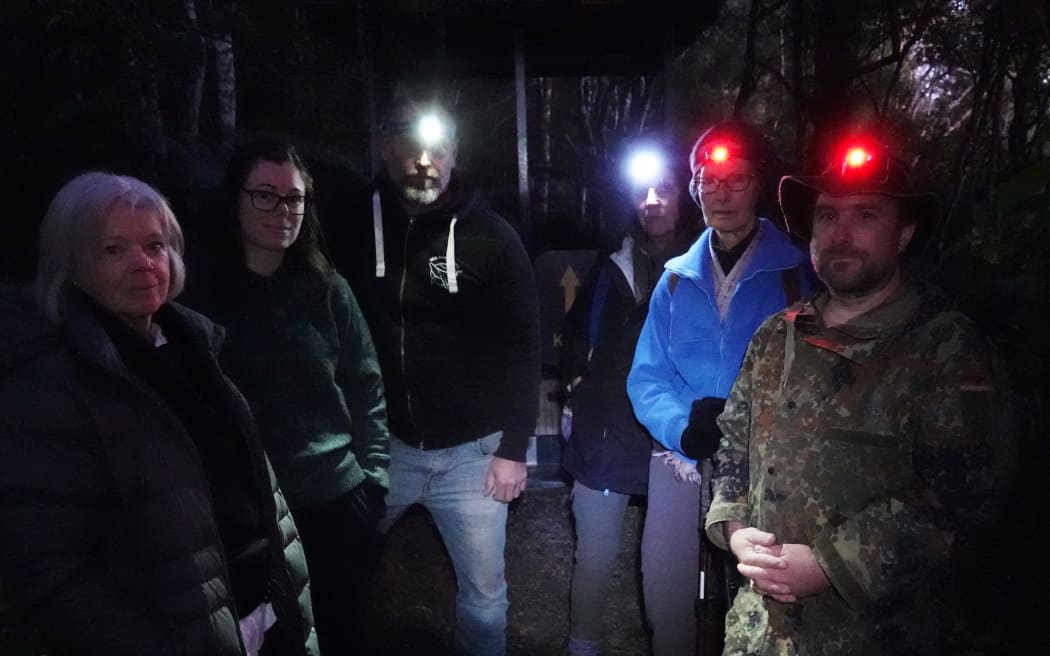
Bay Bush Action volunteers in Northland. From left, Kathy Ross, Emily Ross, Craig Salmon, Cynthia Matthews, Peggy Burbank and Martin Schmid.
Photo: RNZ / Peter de Graaf
Hearing calls from two pairs of surviving kiwi in Ōpua Forest has given a conservation group hope its efforts to bring back the national bird may not have been in vain.
Bay Bush Action volunteers have been devastated by the deaths of at least six kiwi since 23 July, all of which are believed to have been the result of attacks by roaming dogs.
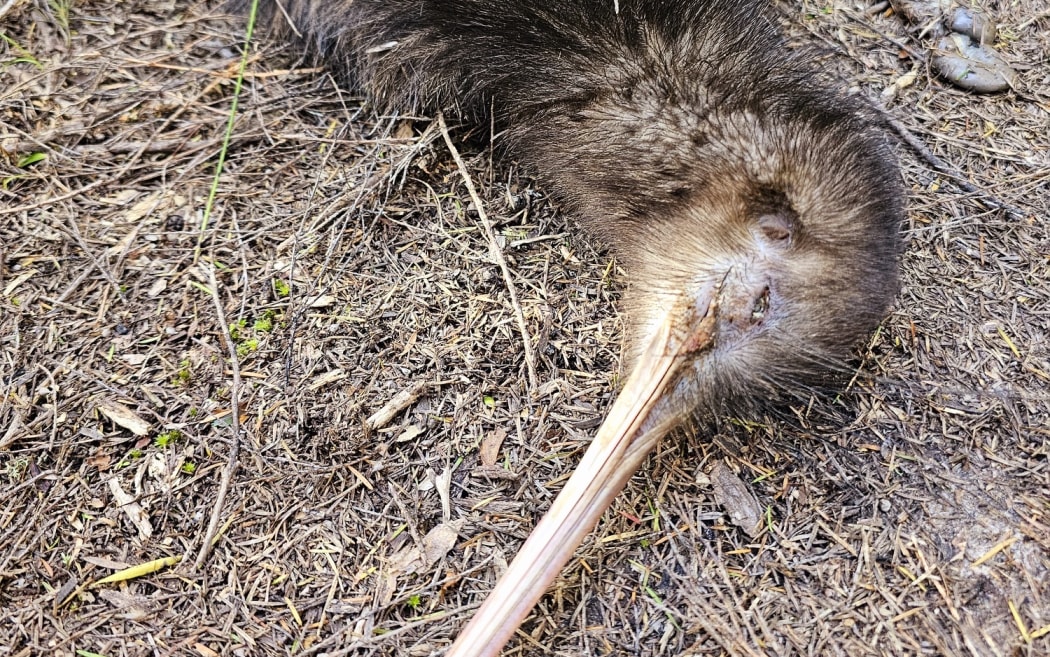
One of the dead kiwi recovered by the group.
Photo: Bay Bush Action
When the group started pest control in the bush-clad hills behind Paihia 12 years ago it was thought there were no kiwi in the area.
Volunteer kiwi monitors started hearing calls a few years ago and by last year the estimated population had grown to 22.
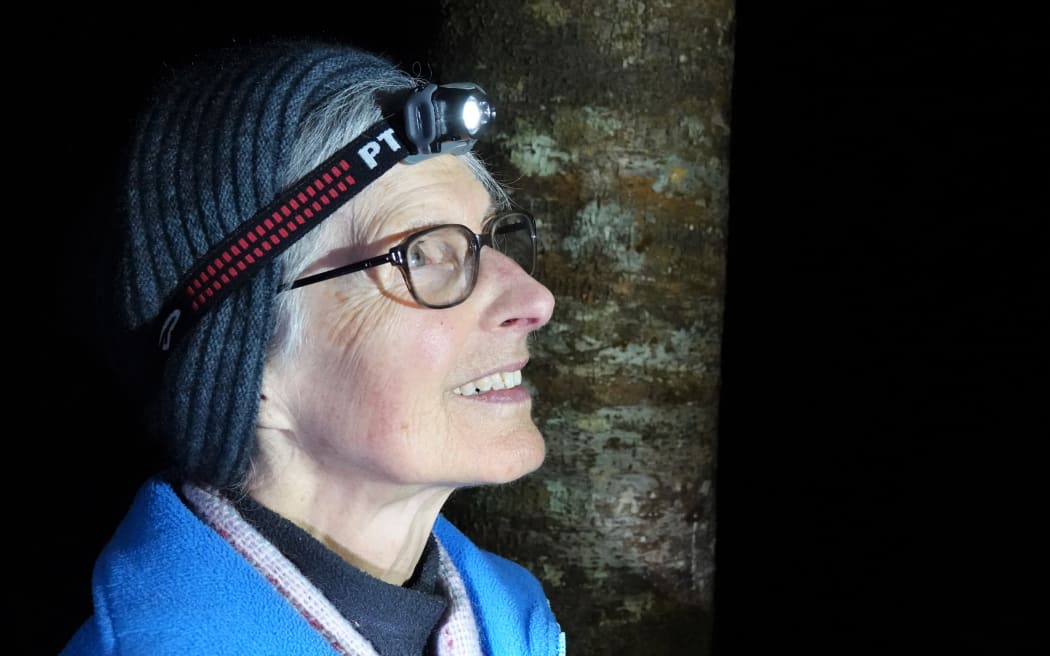
Volunteer kiwi monitor Peggy Burbank.
Photo: RNZ / Peter de Graaf
It’s likely more than six have died in the past few weeks – the bodies that have been found were those on tracks and trapping lines – so it was feared the population could have been wiped out.
On Monday, however, Bay Bush Action co-founder Craig Salmon was relieved to hear the call of a male kiwi near Paihia, followed soon after by a female.
That meant there was hope the birds would breed and build up their numbers again.
On Wednesday night, while volunteers were checking a monitoring site near Ōpua with an RNZ reporter in tow, another pair was heard calling to each other.
Salmon said he set up the group when he bought a property bordering Ōpua Forest in 2011, and found it was crawling with possums with the trees all but stripped bare.
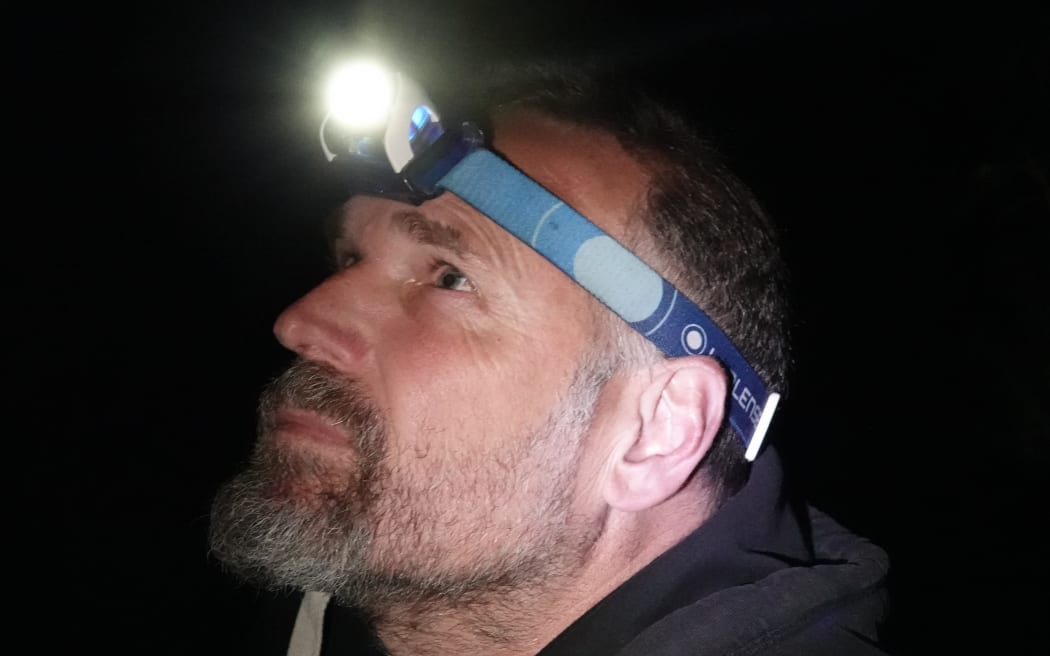
Bay Bush Action co-founder Craig Salmon says the deaths of at least six kiwi have been devastating.
Photo: RNZ / Peter de Graaf
Clearing his own property of the pests proved impossible because possums kept flooding in from neighbouring Department of Conservation land.
Together with co-founder Brad Windust he started pest control in 250 hectares of DOC land. That had since expanded to 1750ha, he said.
It had been an enormous effort but it had paid off with the return of the forest canopy, followed by native birds such as kukupa and kiwi.
“It’s been a massive 12 years for us and our volunteers but it’s just been so worth it, seeing the results. It’s been awesome to see the health of the ngahere [forest] recover. The return of the flora and fauna has been spectacular,” Salmon said.
Cynthia Matthews, from Ōpua, is one of the group’s volunteer kiwi monitors.
At regular intervals she spends part of the night at a fixed spot in the bush and counts kiwi calls, allowing the group to estimate how many birds are present.
Matthews said she heard very few calls three years ago, and when she did, they were far away.
Recently, however, she had been counting as many as 15 kiwi a night, all nearby.
“It was so affirming that what was happening here was really working. It was like, ‘That’s what we’re here for. They’re not only here, they’re here in numbers’.”
After so much effort the kiwi deaths had been devastating, Salmon said.
“The last few weeks for me has been really hard. That kiwi on Sunday … the dew came off the kiwi’s eye like tears. It’s so tough to see this work we’ve done fall apart in an instant,” he said.
“I’m just pleading with people to understand how much energy and effort we’ve put in over the past 12 years to try and bring these animals back.”
Salmon said dogs and kiwi needed to be able to live together – and that meant owners keeping their dogs out of kiwi areas.
Volunteer trapper Emily Ross, of Paihia, was patrolling a trap line with her mum on Sunday when she discovered the most recent kiwi corpses.
“It was heartbreaking. It just hurts. We do all this work and put in all this time and energy and money and then to have it changed in a matter of seconds … it just shows how vulnerable they are.”
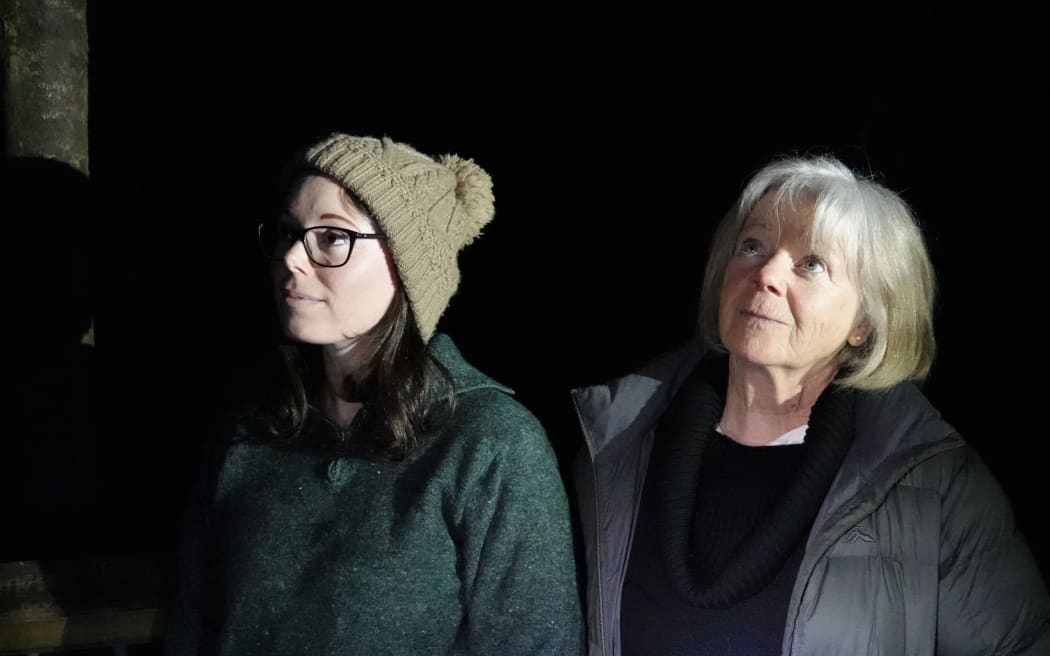
Paihia trapping duo Emily and Kathy Ross found two mauled kiwi last Sunday.
Photo: RNZ / Peter de Graaf
Salmon said the lesson for dog owners was to keep their pets under control, and for conservation groups to be dog-ready.
He said conservation groups around the country had been hugely successful in controlling stoats and feral cats, the main killers of kiwi chicks.
That meant kiwi were able to grow big enough to defend themselves against most threats – once a kiwi weighed about a kilogram it could fight off a cat or a stoat – but even an adult kiwi had no chance against a dog.
Bay Bush Action just wasn’t ready for the new threat, he said.
He had, however, taken heart from hearing a kiwi pair from his home on Monday, and again in the bush on Wednesday.
“We have pairs in the forest, still alive, that can breed and bring them back. That’s awesome.”
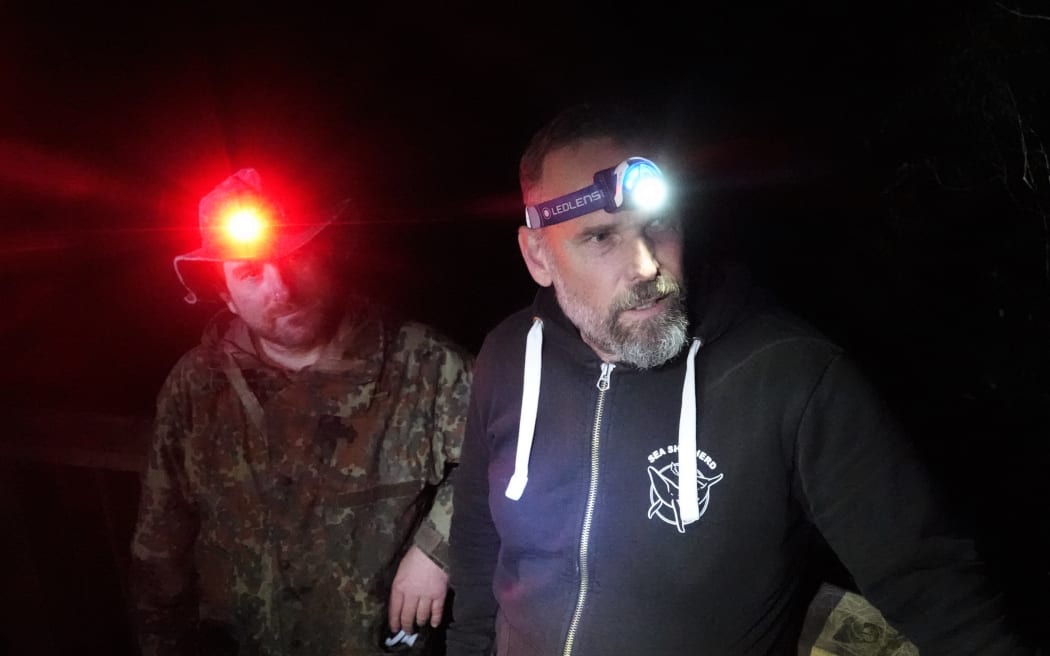
Trapper Martin Schmid and Bay Bush Action co-founder Craig Salmon.
Photo: RNZ / Peter de Graaf

